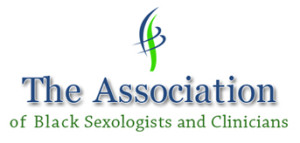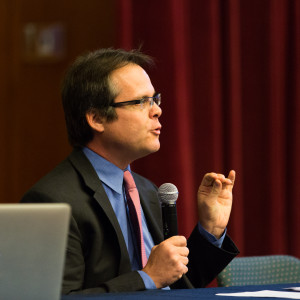By Marlene Pray, Karen Rayne, and Bill Taverner
 This past weekend, we were witnesses to an historic event: the first-ever conference on Black Families, Black Relationships, and Black Sexuality organized and executed by the Association for Black Sexologists and Clinicians. The weekend was a mix of thought, learning, networking, fun, good food, and important conversations. We were honored to be included on the program, presenting a well-attended session titled “On Being an Ally for Racial Justice in Sexuality Education”.
This past weekend, we were witnesses to an historic event: the first-ever conference on Black Families, Black Relationships, and Black Sexuality organized and executed by the Association for Black Sexologists and Clinicians. The weekend was a mix of thought, learning, networking, fun, good food, and important conversations. We were honored to be included on the program, presenting a well-attended session titled “On Being an Ally for Racial Justice in Sexuality Education”.
Racial Justice has been on the minds of many people in the field of sexology during the past year; and others have been thinking about these issues for decades. Instances of injustice on a macro level, including many instances of police brutality against people of color – have fueled inward reflection about injustices within our own field. There are many examples. Too many. The examples go far deeper than occasional, isolated instances of racism; they are also systemic, institutionalized within our field and fields we intersect and work with.
In our session, we asked our audience, mostly comprised of people of color, to complete several sentence stems. (Beginnings of sentences, inviting participants to complete them.) We started with these.
1. Racial justice in the field of sexology means…
2. A specific example of racial injustice in our field is…
The audience gave answers that added deep perspective, and which surely evoked many feelings for both the audience and the presenters. We had planned for the audience to listen to each other, and not to record their responses, and soon realized that this was a mistake, and several participants specifically asked if we could record the responses in some way. What the audience was offering us – especially in response to sentence stem #2 – were rich, important, and things that our white colleagues need to hear. Thankfully, Aida Manduley was live tweeting at lightening speed, and captured several important responses.
Q1: audience says equity, just financial compensation, acknowledging racist past of #sexology, #pluralism w/o hierarchy #blacksexnerdsinPHL
— Aida Manduley, LICSW (they + elle) (@neuronbomb) October 3, 2015
Q2: diff treatment, lack of diversity re: POC subgroups in research, white academics taking credit for POC work #blacksexnerdsinPHL
— Aida Manduley, LICSW (they + elle) (@neuronbomb) October 3, 2015
Other responses to sentence stem 1 (Racial justice in the field of sexology means…) included:
- acknowledging racist past. Including sexual multi-epistemic literacy, epistemic justice, sexual pluralism without hierarchy, and decolonization.
- considering the impacts of racism on how sex is viewed by individuals with different backgrounds and of individuals with different backgrounds.
Other responses to sentence stem 2 (A specific example of racial injustice in our field is…) included:
- genderism.
- monoepistemic colonality.
- lack of representation, opportunities, and access given to POC.
- feeling unheard or overlooked due to monolithic narratives of who we are, what we experience, and what we need – ignoring the nuances of intersectionality and intergenerational transmission of trauma.
We invited participants to add their thoughts to a Google Drive document, and we hope to be able to share a more fleshed out list at a later time.
We continued with a few more sentence stems:
1. When it comes to racial justice in the field of sexology, many people of color…
2. When it comes to racial justice in the field of sexology, many white people…
Q1: do the work for free, have been on front lines waiting for others to show up #blacksexnerdsinPHL
— Aida Manduley, LICSW (they + elle) (@neuronbomb) October 3, 2015
Q1: feel unheard or overlooked due to monolithic narratives of our communities & intergenerational trauma #blacksexnerdsinPHL
— Aida Manduley, LICSW (they + elle) (@neuronbomb) October 3, 2015
Q1: want the field to acknowledge its foundations of backs of POC, of people who look like us #blacksexnerdsinPHL
— Aida Manduley, LICSW (they + elle) (@neuronbomb) October 3, 2015
Q2: feel entitled, think POC can't be in charge, wanna keep power & NOT share it, get too defensive, want ally cookies #blacksexnerdsinPHL
— Aida Manduley, LICSW (they + elle) (@neuronbomb) October 3, 2015
Q2: don't see Black ppl as profitable, ignore white supremacy, equate empathy w/ understanding, see allyship as ID #blacksexnerdsinPHL
— Aida Manduley, LICSW (they + elle) (@neuronbomb) October 3, 2015
White ppl feel dislocated, upset, confused, when they're not being centralized & it makes them think they're "targeted" #blacksexnerdsinPHL
— Aida Manduley, LICSW (they + elle) (@neuronbomb) October 3, 2015
Twitter: feel entitled, think POC can’t be in charge, wanna keep power not share it, get too defensive, want ally cookies
Other responses to sentence stem 1 (When it comes to racial justice in the field of sexology, many people of color…) included:
- are silenced and misunderstood.
Other responses to sentence stem 2 (When it comes to racial justice in the field of sexology, many white people…) included:
- are silent.
- are ignorant.
- have good intentions but equate empathizing with understanding.
- are unwilling to experience our pain and discomfort.
And we concluded with :
5. In order to advance racial justice within the field of sexuality and sexology, action steps that white allies need to take are…
SO ACTION STEPS WHITE ALLIES SHOULD TAKE: hire more POC, refer paying gigs, learning history of the field & POC #blacksexnerdsinPHL
— Aida Manduley, LICSW (they + elle) (@neuronbomb) October 3, 2015
SO ACTION STEPS WHITE ALLIES SHOULD TAKE: acknowledge they're part of the problem, give credit to POC for their work #blacksexnerdsinPHL
— Aida Manduley, LICSW (they + elle) (@neuronbomb) October 3, 2015
ACTION STEPS WHITE ALLIES SHOULD TAKE: share stories of fuckups & how they fixed/shoulda fixed 'em 2 role model 4 others #blacksexnerdsinPHL
— Aida Manduley, LICSW (they + elle) (@neuronbomb) October 3, 2015
ACTION STEPS WHITE ALLIES SHOULD TAKE: be co-conspirators with POC to make white spaces antiracist #blacksexnerdsinPHL
— Aida Manduley, LICSW (they + elle) (@neuronbomb) October 3, 2015
Other responses to sentence stem 2 (In order to advance racial justice within the field of sexuality and sexology, action steps that white allies need to take are…) included:
- take ownership of injustice perpetuated.
- learn about Black herstories.
- being willing to “inconvenience” their safe spaces for the sake of challenging the status quo and to share the burden of living in discomfort.
- advancing racial justice.
We’re grateful for Aida’s chronicling these responses, and we look forward to compiling a more thorough list.
Reflecting on the workshop, we were reminded of a keynote speaker who had spoken the day before. The speaker wondered aloud where all the white professionals were. It was an important and jarring question to pose to an audience comprised mostly of people of color who might reasonably respond, “Why are you asking me?” But it also made us, as white anti-racist allies, think that the conversation in our workshop was too important not to be shared with white colleagues, who need to be part of the solution.
We need our white colleagues to hear what our colleagues of color are saying. We invite YOU to think about how you would respond. Please consider posting your response on your own Facebook page, and please tag us




